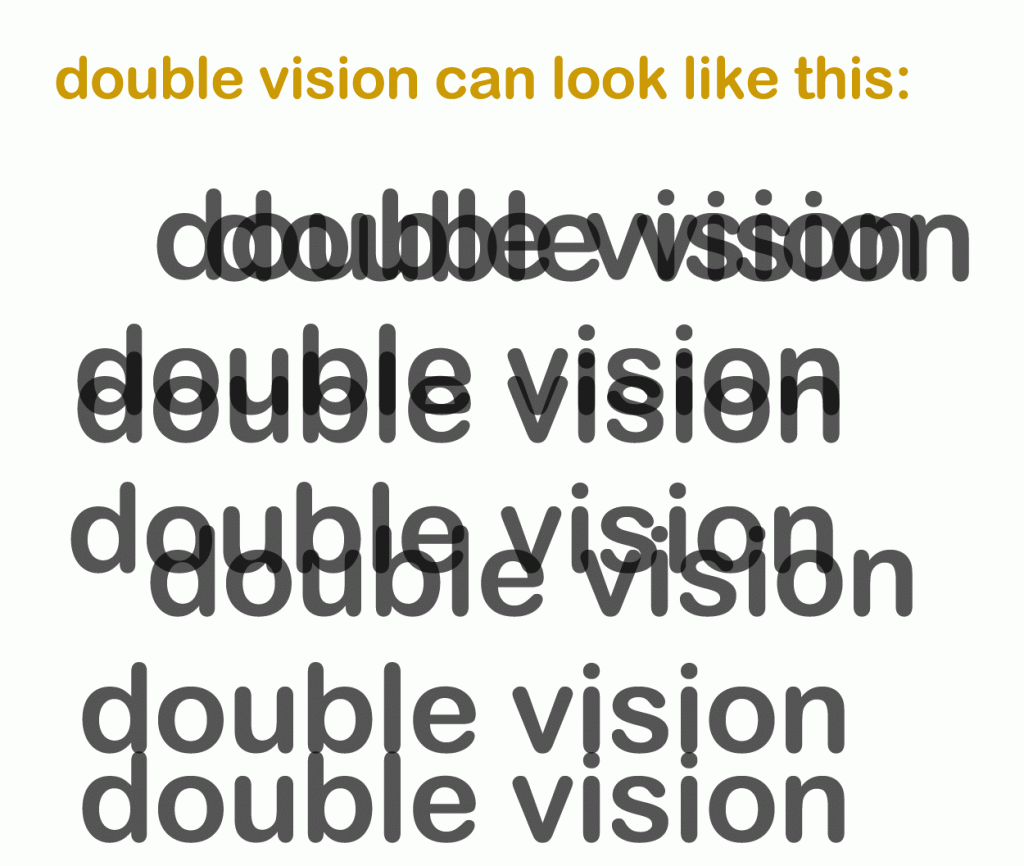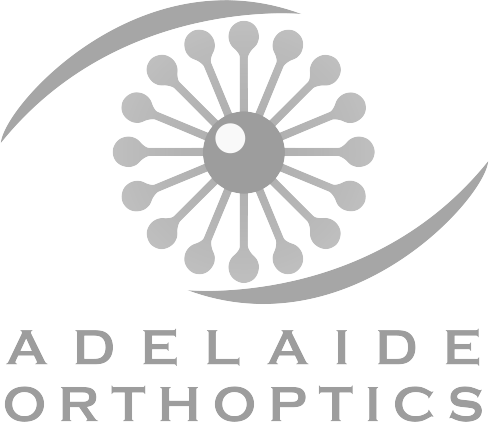What is Double Vision?
Simply put, seeing more than one image is technically double vision, but there are different iterations such as ghosting, halo’s, overlapping images and double vision.
Your doctor, optometrist or orthoptist may write the word ‘diplopia’ in referrals or letters regarding your care. Diplopia is the medical term used to describe double vision, but does not in itself explain the underlying cause of the problem.
Patient’s should always see their GP or Optometrist if they start developing double vision, as there are some causes that are serious and require urgent medical care.

Monocular vs Binocular Double Vision

Orthoptists assist patients with binocular double vision, this is the type of double vision caused by misalignment of both eyes.
To know whether your double vision is monocular or binocular, cover one eye and see whether your double vision goes away. Then switch to the other side and check the 2nd image goes away again, this is binocular double vision and maybe treatable with prisms.
What is monocular double vision caused by?
Monocular double vision occurs due to a range of issues including dry eyes, incorrect glasses prescription, keratoconus, uncorrected astigmatism (type of glasses need), cataract and retinal issues.
Patients with monocular double vision should first see their optometrist to identify whether it is caused by an ocular surface issue or a glasses issue. If the optometrist cannot treat your monocular double vision then referral to an ophthalmologist is required.
What is binocular double vision caused by?
Double vision may be caused by many different reasons including a childhood squint that has worsened, eye strain, changing glasses needs, systemic disease, stroke, trauma, retinal detachment surgery or other neurological conditions.
In these cases, once serious underlying causes have been ruled out by your GP or optometrist, we can help! Binocular double vision is an area of expertise for orthoptists who spend a significant amount of time training in eye movement issues, and therefore this is something that the team at Adelaide Orthoptics can assist you with.
What treatment options are available?
Double vision is extremely frustrating and disabling for patients, especially with no clear timeline for when it will resolve.
Depending on the underlying cause of your double vision, various treatment options maybe available to you and your ophthalmologist and orthoptist will explain what is and is not appropriate in your specific care.
Surgical Approaches:
Squint Surgery – surgery to realign the eye muscles, performed by ophthalmologists.
Botulinum Toxin A (aka Botox)
Conservative Approaches:
Prisms – either built into your glasses lens, or attached onto your existing lenses in the form of a fresnel prism
Bangerter Foils – a type of frosting that mounts onto glasses
Eye patch – adhesive or fabric types are available
Eye Exercises
How can Adelaide Orthoptics help?
At Adelaide Orthoptics we keep stock of prisms, foils, patches, eye exercise cards and plain lens glasses at all times.
Make an appointment at Adelaide Orthoptics today using our Health Engine tab at the bottom of the page, alternatively you can contact us on reception@adelaideorthoptics.com.au



